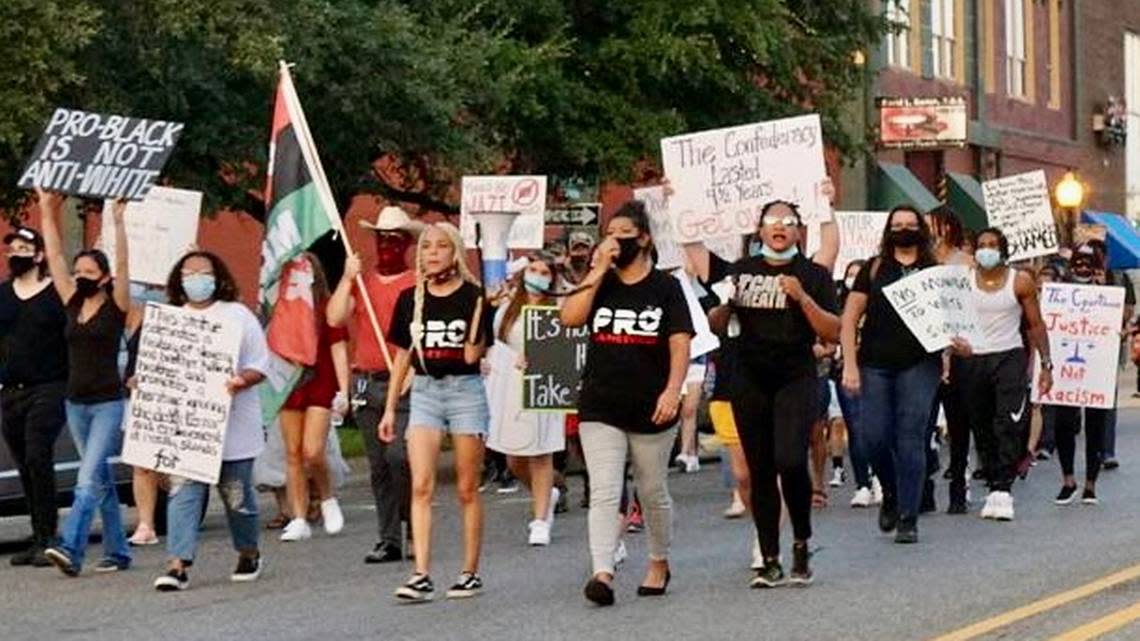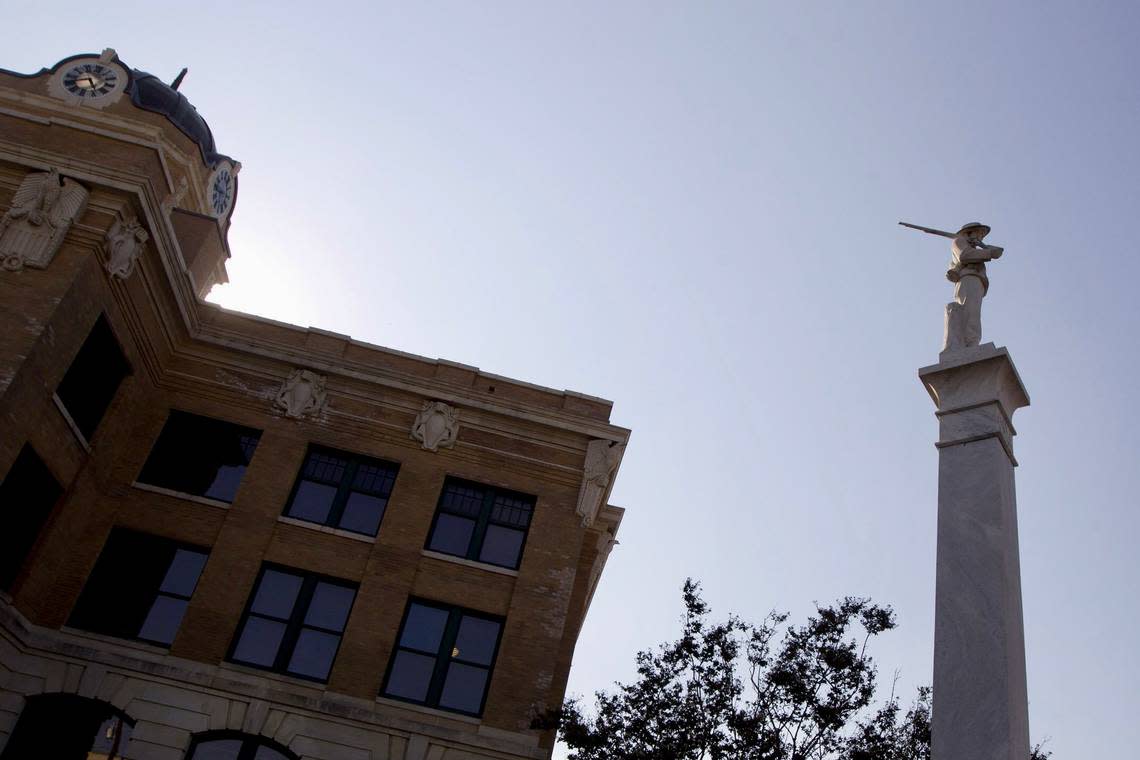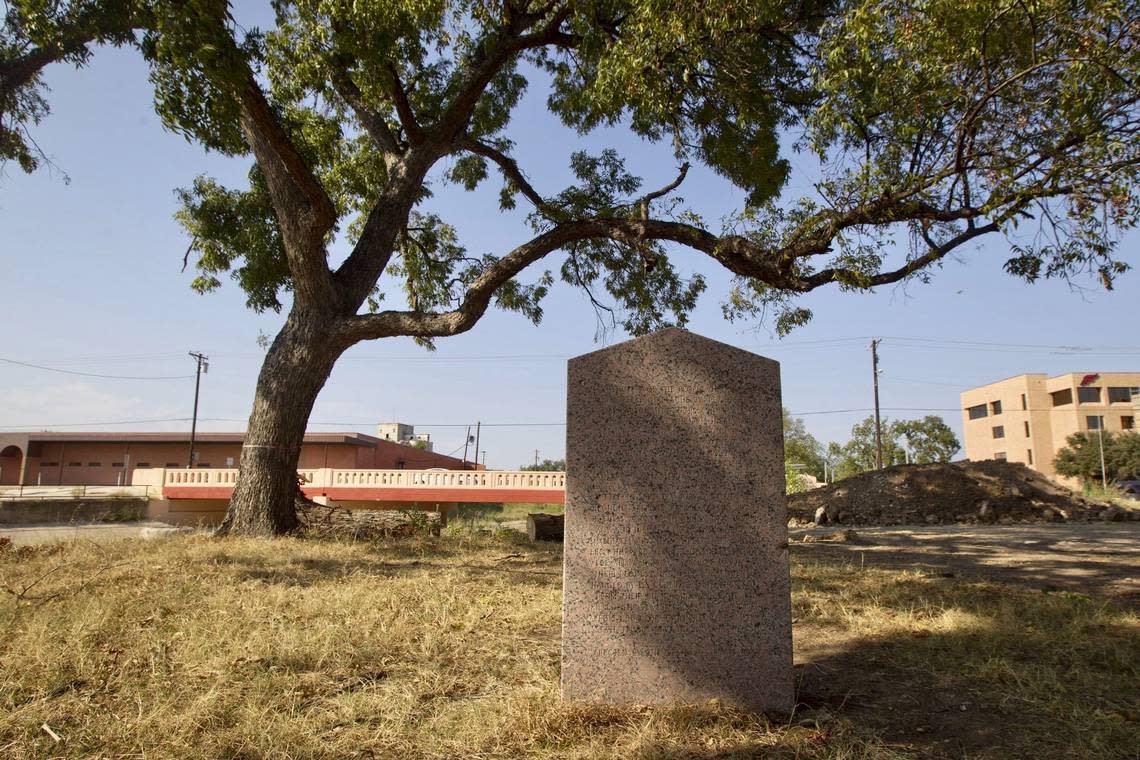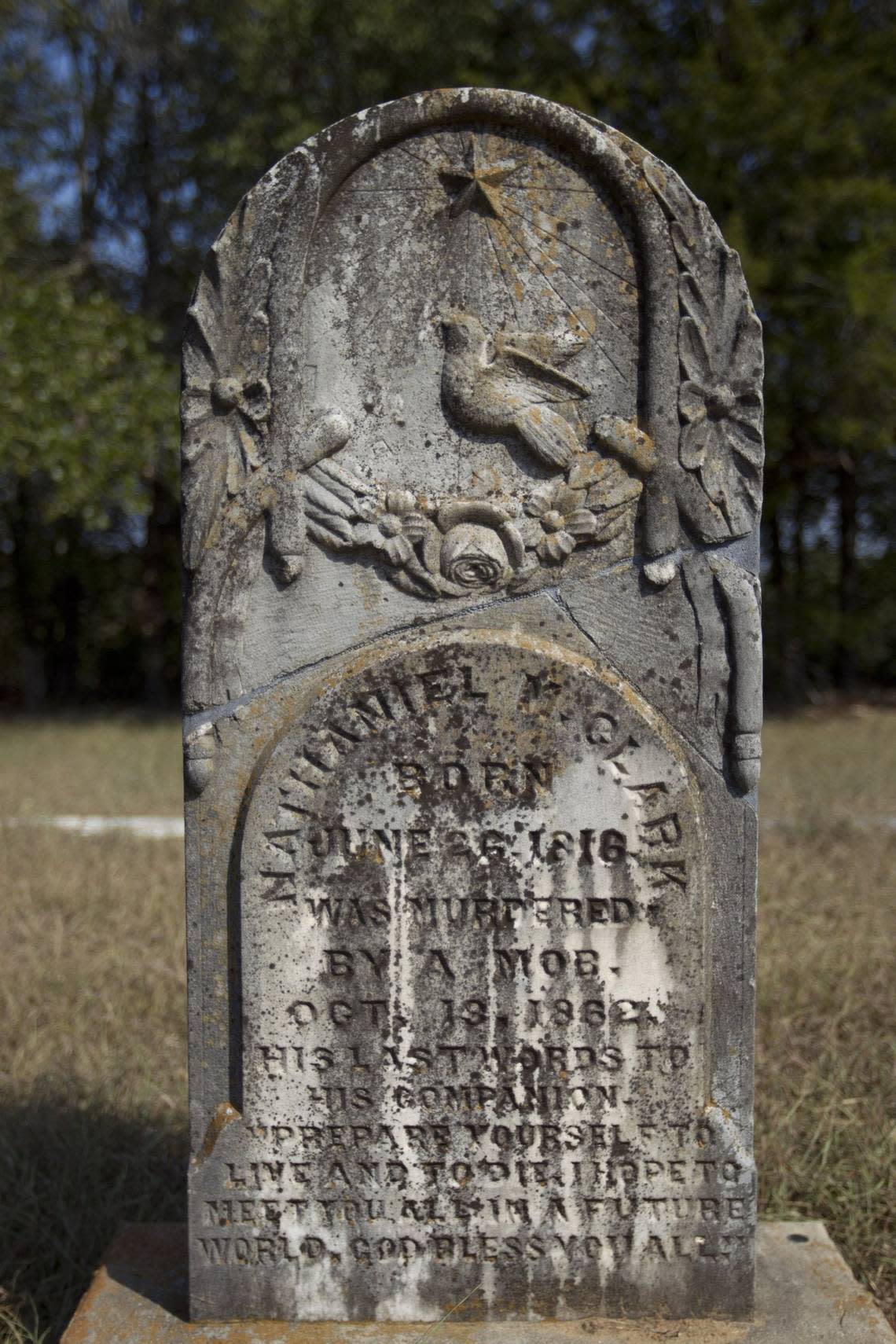They protested Gainesville’s Confederate marker. A jury sentenced them to a week in jail
Almost exactly 160 years after the “Great Hanging” that killed 42 Confederate dissenters lynched or captured across three North Texas counties, the conflict continues around a Gainesville Confederate memorial desperately protected by local officials and militia allies.
In a verdict that even the hometown newspaper criticized “in the strongest terms,” three young protest leaders were sentenced last month by an all-white Cooke County jury to a week in jail. They were also fined $2,000 for walking in the street briefly during an Aug. 30, 2020, courthouse memorial protest that was met with a larger, intimidating armed mob waving Confederate battle flags.
The lawyer for the three protesters, residents of Gainesville and Denton, said she will appeal the Class B misdemeanor convictions — all for “obstructing a highway” — to the Fort Worth-based Second Court of Appeals.
“This town was taking very personally the idea that anyone would be against the Confederate monument,” said the defense attorney, Alison Grinter Allen of Dallas.
“It wasn’t about slowing down any traffic.“

The Gainesville Daily Register wrote: “We at the Register concede that stepping onto California Street in between intersections is a misdemeanor. ... Does it really require a week in the county lockup and a $2,000 fine?”
The Register urged readers to donate to appeals for the protest group, PRO Gainesville. The paper wrote that the convictions of Torrey Henderson, Amara Ridge and Justin Thompson ignored the influence of “gun-toting, Confederate battle-flag-waving counter-protesters led by some guy from Montague County screaming.”
On Facebook, the Gainesville chapter of the Sons of Confederate Veterans openly calls for Texas to secede again from the U.S.

A 2020 comment still posted Friday read: “Gainesville need 3 GOOD HANGIN’ ROPES to take care of these PRO GAINESVILLE WHITE TRASH.”
The memorial protests had grown in 2020 after the death in Minnesota that May of Texan George Floyd.
Some include history speakers about the Great Hanging of 1862, when Gainesville became the center of one of the most infamous crackdowns on free speech in Civil War history.
Cooke County had voted by 62% to side with the Union. But Texas seceded, and after Confederate commanders convicted seven men for talking resistance, a vigilante mob rounded up 14 more and hanged them in what is now a Gainesville park.

A total of 42 men were killed over dissent, including five Rhome-area men hanged in Wise County. A prisoner was shot in Denton. Some were accused of spying.
It has been called the largest mass lynching in American history.
Despite descendants’ pleas, it was not until 2014 that a memorial first proposed in 1916 was built to remember the victims of a justice system bent on annihilating its critics.
One of the victims’ gravestones reads, “Murdered by a Mob.”

“This is what their protests are about,” Allen said. “They have this Confederate statue here at the front door of a building that is supposed to give you justice.”
She said Judge John Morris’ courtroom was a “spooky place — I’ve never worked anywhere in a colder room. That community is just still really hurt from antipathy toward these folks.”
County Attorney Ed Zielinski personally prosecuted the minor misdemeanor, saying protesters broke the law by not remaining on the sidewalk as police had ordered.
According to the Register, Zielinski repeated a quote originally from an early 20th-century Catholic leader, Archbishop John Ireland of Minnesota: “Law is order in liberty, and without order, liberty is social chaos.”
Ireland was a rare Catholic progressive.
Zielinski did not quote what else Ireland preached:
“It makes me ashamed as a man, as a citizen, as a Christian, to see the prejudice that is acted” against Black Americans, Ireland said in a sermon in Washington, D.C.
“Every prejudice entertained, every breach of justice and charity against a fellow citizen because of color is a stain flung upon the banner of our liberty that floats over us.”
Put that on a new memorial.
